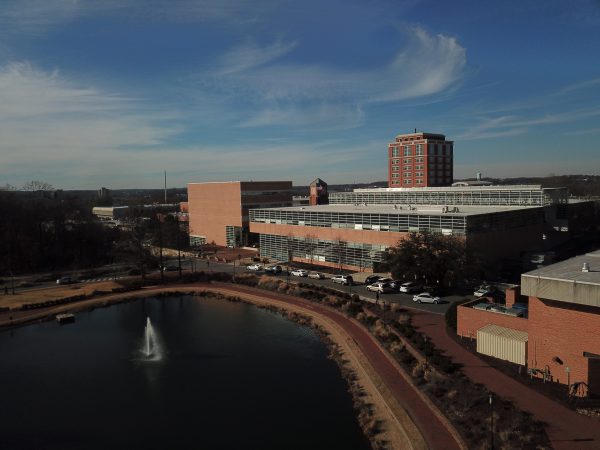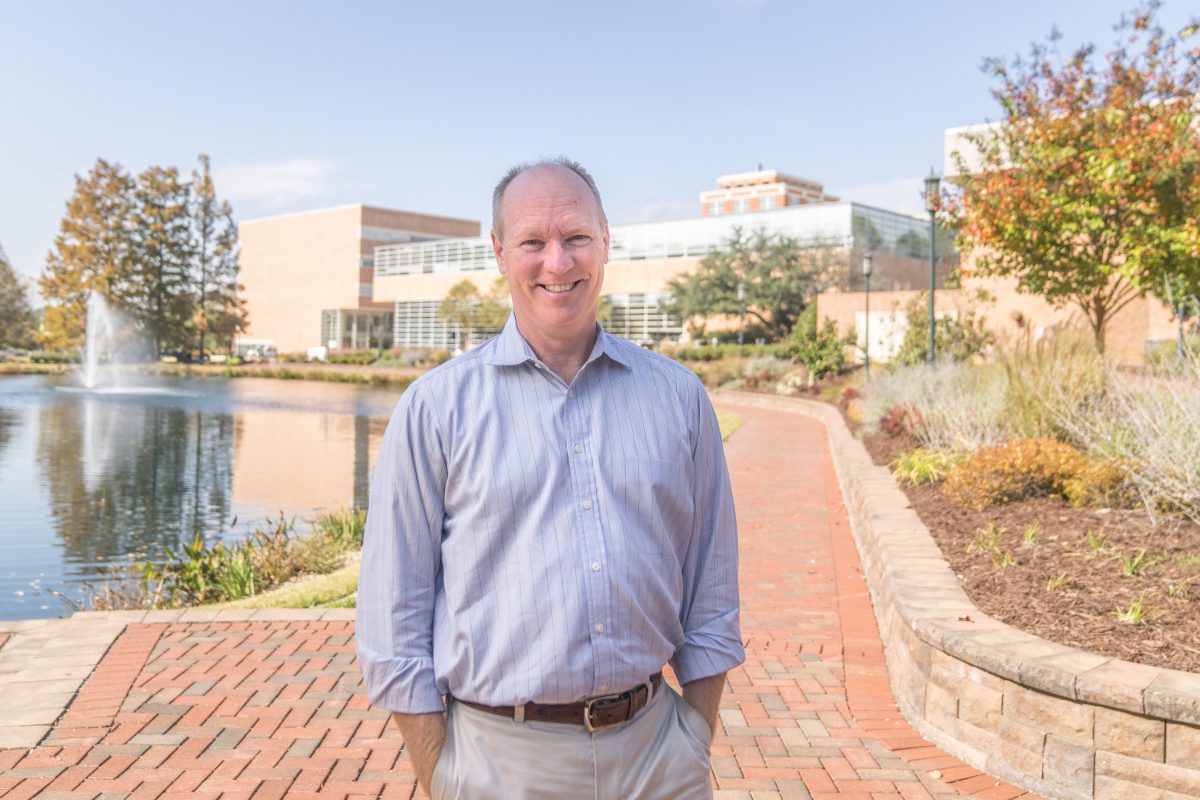Public service while we’re social distancing

Like everyone else, the UNC Charlotte Urban Institute team is adjusting to the new reality of working from home and becoming part of a national focus group on consumer preferences for remote conferencing services (after a couple of weeks of sampling, do you now prefer Zoom, WebEx, or Google Hangouts Meet?).
In our effort to stay connected as a team, even the institute’s weekly “research huddle” has gone virtual. It’s a 30-minute “standup” where our researchers provide updates on what they’re working on and share ideas for future research topics. It’s a wonderful time as a director to sit back and marvel at the talent that has been assembled in one team, and to be impressed by their passion to serve the public, even during a time when that public has by necessity turned inward and when it’s not always clear what form our service should take.

Jeff Michael
In our hearts, all of us who work at the institute consider ourselves public servants. That shouldn’t be a surprise, as the institute is what is known in the academic world as a “public service organization.” We even belong to a national group called the Consortium of University Public Service Organizations (CUPSO) with peer institutions such as the Weldon Cooper Center at UVA and UNC Chapel Hill’s School of Government, all contributing to the well-being of their communities and states through research and technical assistance.
In this time of coronavirus, however, some of us are perhaps a little uncomfortable using the term “public service” to describe our work — especially when so many of our traditional partners in the medical profession, local government and the nonprofit world are literally on the front lines, managing the human toll that the current crisis is taking on our community. They are the true public servants — as they always have been — deserving more than ever our full support, even if it’s just honoring their call to self-quarantine.
And yet, the impulse to serve is a hard thing to suppress in those who are so called, especially when stay-at-home orders and pauses in research projects are beyond one’s control. I’ve seen this first-hand in the institute’s research huddles over the past two weeks. A virtual “white board” has been created to capture all of the great ideas that have surfaced for using the institute’s resources to inform our understanding of COVID-19’s impact on the Charlotte region.
Many of those ideas have already resulted in meaningful content for our website and weekly newsletter – from Lori Thomas’s thoughtful assessment of how the pandemic could affect Charlotte’s homeless, to Ely Portillo’s and Katie Zager’s insightful examination of data to understand how “sheltering in place” can be more difficult for those living in crowded housing conditions. If you missed these, go to the “Articles” page on our website and see what our researchers have been thinking about as this crisis has unfolded.
And while we continue to brainstorm, we invite you to send us your ideas. What are the questions you have about how the pandemic is impacting the Charlotte region in the short run? And what are the policy concerns that you worry about long-term that the current crisis is likely to exacerbate?
We can’t promise you that we’ll have interesting insights for all of your questions, or that the data are yet available even to answer them adequately.
But as a regular reader of the institute’s work, you’re likely a public servant as well (at heart if not in practice), and like us, the impulse to contribute something meaningful during this period of self-isolation is strong. So let us know what’s on your mind.